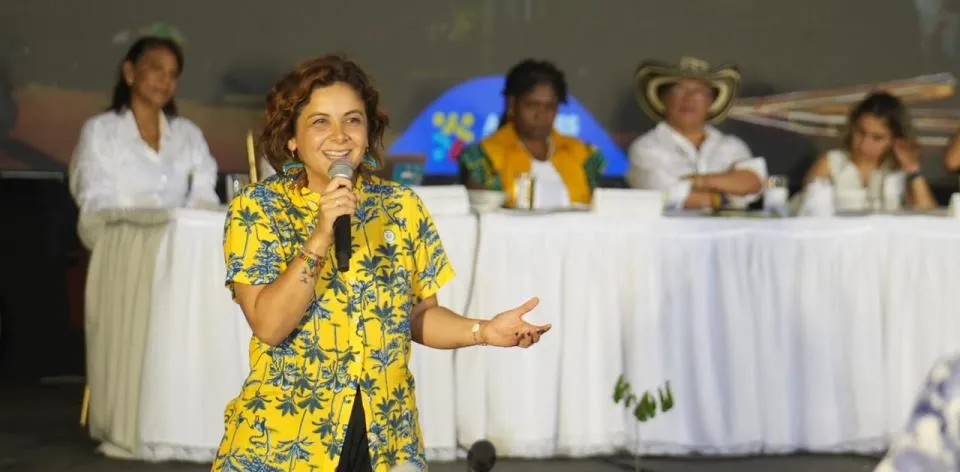PRESS ROOM
 21/3/2024
21/3/2024
The Mojana will be ordered around water with recovered lands, agri-food production, and sustainable livestock

The Minister of Agriculture and Rural Development, Jhenifer Mojica, signed the commitment for water regulation alongside President Gustavo Petro and other officials of the Change Government.
Additionally, together with the Ministry of Environment and Sustainable Development, the agricultural portfolio launched the Sustainable Livestock Program to reduce greenhouse gas emissions, increase carbon capture, and preserve natural resources on livestock farms.
San Marcos (Sucre), marzo de 2024 (@MinAgricultura). Water will return to its course in La Mojana, and the land will turn green again. Its marshes, sandbanks, and water connections will be restored. That was the commitment signed by President Gustavo Petro; the Minister of Agriculture and Rural Development, Jhenifer Mojica, and other National Government officials for the reconnection of the Cauca River, streams, and marshes in La Mojana, with a historic investment exceeding 2.1 trillion pesos for the period 2024 - 2026.
This environmental recovery process of La Mojana will be completed and articulated with Agrarian Reform since it is the way to ensure food production and supply in the region. "There is a determined action by the State to recover those lands, those savannas, and those sandbanks, which are the possibility of feeding an entire people. Sadly, in this great food pantry, here in Sucre, half of its population suffers from hunger," stated Minister Mojica.
Together with the National Land Agency and the Land Restitution Unit, and with the leadership of the Ministry of Agriculture, work is currently being done on the recovery of 78,000 hectares of land from agrarian processes, especially from land boundary demarcations of the nation, which will be destined for the exclusive use of peasants and artisanal fishermen.
Likewise, the Change Government will conclude the boundary demarcation process on more than 17,962 hectares of land in the departments of Sucre and Córdoba, and will register the boundary registration folios of the Ciénaga Grande del Bajo Sinú.
The announcements were made on the third day of the Government with the Caribbean People, in San Marcos (Sucre), where President Petro arrived with his cabinet to listen to the peasants and deliver and assume new commitments that respond to the needs of the people.
"Here remains the promise, and the goal is very high: we must recover at least 78,000 hectares of land that are water mirrors during flood periods and that in times of drought serve for planting rice, cassava, or corn. That serves for the feeding of one million people," added Minister Jhenifer Mojica.
Livestock also has to change
During her speech, the Minister of Agriculture stated that not only the change in land ownership is essential to achieve zero hunger. "Livestock here also has to change: we have almost 700,000 heads of cattle in La Mojana, and of that, 60% are raised by peasant families. There are 8,600 small livestock farmers, and today we come with the Minister of Environment to say that we want it to be sustainable," added the leader of the agricultural portfolio.
Thus, the Sustainable Livestock Program reached La Mojana. It is a project that has an investment of $48 billion, led by the Ministry of Agriculture and Rural Development and the Ministry of Environment and Sustainable Development, which seeks to implement livestock landscape management tools in 20,000 hectares of the region and benefit 8,300 peasant families.
Additionally, 110 farms will be strengthened for capacity building and research in conservation and sustainable livestock practices for producers, technicians, and professionals. It is estimated that 49% of the farms participating in the program will be owned by female livestock farmers.

